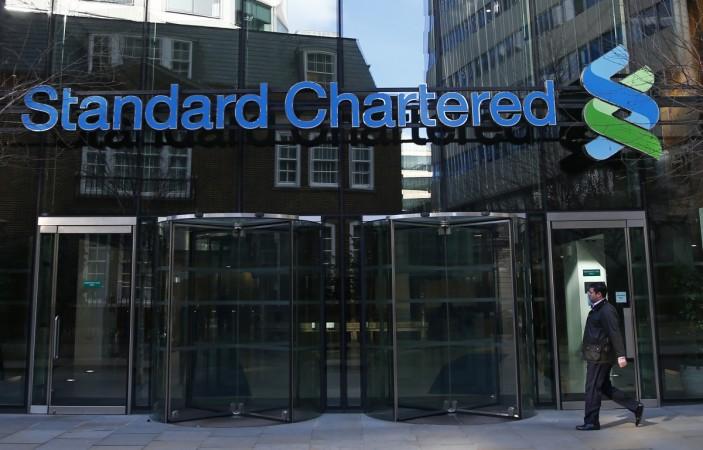
Standard Chartered expects to further cut provisions for bad loans in its key markets of China and India, and is also looking to lower exposure to the heavy industry sector, the bank's Greater China and North Asia chief said on Thursday.
A sharp spike in non-performing loans in China and India had weighed on the Asia-focused bank's balance sheet in the last few years, as a slowdown in the two countries' economic growth hit clients in the infrastructure and commodities sectors.
But the British lender on Wednesday reported that loan impairment levels in China and India more than halved in the first six months of 2016 compared to the year-ago period; to $42 million in the case of China and $224 million in India.
"That's a direction we are driving," who is also part of the bank's top global management team, told Reuters in an interview.
Standard Chartered's income from Greater China and North Asia, which includes Hong Kong, China, South Korea, and ASEAN and South Asia, within which Singapore and India are most important, accounts for nearly 70 percent of its total revenue.
"What we have been doing is establishing a new risk tolerance framework and appetite, ensuring that the bank doesn't get overly concentrated in any particular single borrower or single market or single industry," Hung said.
"The market remains highly uncertain, but at least we believe that this is a step in the right direction in terms of making us control our loan impairment."
The bank, which swung back into profit in the first half of the year, is also looking to reduce its exposure to "old economy" companies in the region and focus more on sectors including technology and pharmaceuticals, he said.
"What you are seeing is a bit of reshuffling of our industry focus, so that those then become engines for future growth," he said. "You just have to look a little bit ahead of the curve and be able to tune your portfolio before everybody does it."
The bank's total credit exposure to the commodities sector, including oil and gas producers that have been hit by the drop in prices, has fallen from $60.7 billion in the first half of 2014 to $37.1 billion in the January-June period of this year.
PRIVATE BANKING
Standard Chartered, which has undergone sweeping restructuring since CEO Bill Winters took charge a year ago, also plans to invest more on technology and people in its private banking business in Asia, Hung said.
Many global private banks have put Asia at the centre of their growth strategy, hiring thousands of staff and tapping new customer segments in a region soon expected to boast more billionaires than the United States.
Winters said on Wednesday that the bank's private banking business was substantially under-exploited and that he planned to make this a "differentiated business" in Asia, the Middle East and Africa.
"We are investing, first of all, quite heavily into wealth platform, the engine, the infrastructure...we are recruiting a lot of people," said Hung, who joined Standard Chartered in 1992 and has held a number of senior management positions since then.
While declining to give details on headcount expansion, Hung said that the bank would leverage its existing corporate and commercial banking client base to boost its private banking assets in the region.









